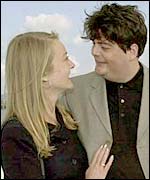My article in AltVoices.org, June 2007:
THE OFFICIAL SILENCING ACT
Last month the UK’s draconian secrecy laws were again used to criminalise two honourable whistleblowers. The UK’s supine mainstream media failed both to question the validity of these convictions and to hold the government to account.
by Annie Machon
On May 9 David Keogh, a 50-year-old communications officer in the Cabinet Office, and Leo O’Connor, 44, a researcher for an anti-war Labour MP, were convicted of breaching the Official Secrets Act (1989).
Keogh’s crime was to have leaked an “extremely sensitive” memo to O’Connor, detailing a conversation about Iraq between Tony Blair and George W. Bush in April 2004.
Keogh passed the document to O’Connor to give to his MP in the hope it would reach the public domain, expose Bush as a “madman”, and lead to questions in Parliament. The memo was deemed to be so secret that much of the trial was held in camera.
Keogh was found guilty of two breaches of the OSA, O’Connor of one, and they received sentences of six months and three months respectively.
 This bald summary of the case was all that appeared in the mainstream UK media. No doubt many people will have taken this case at face value. After all, the UK should be able to protect its national security and impose tough legal sanctions for treachery, shouldn’t it?
This bald summary of the case was all that appeared in the mainstream UK media. No doubt many people will have taken this case at face value. After all, the UK should be able to protect its national security and impose tough legal sanctions for treachery, shouldn’t it?
Except that this was not treachery. Keogh and O’Connor were not passing the UK’s secrets to an enemy power. They acted from conscience to expose possible wrongdoing at the highest level.
The media should have use this trial to address the ongoing debate in the UK about the continual use and abuse of the OSA. Unfortunately for the British people, the media toed the official line and kept quiet.
The UK’s secrecy laws are a very British muddle. The first OSA was enacted in 1911 to prosecute traitors. This law remained in place until the 1980s, when the Thatcher government was rocked by the allegations of civil servant Clive Ponting about a cover-up over the attack on the Argentine ship the General Belgrano during the Falklands War.
During his trial, Ponting relied on the public interest defence available under the 1911 Act. He was acquitted, and the Conservative government immediately drew up a new law, the 1989 OSA. This new law was designed primarily to intimidate and silence whistleblowers. Treachery is still prosecuted under the 1911 Act.
The 1989 Act, opposed at the time by Tony Blair and most of the current Labour government, ensures that anyone who is or has been a member of the intelligence community faces two years in prison if they disclose information relating to their work without permission, regardless of whether they are blowing the whistle on criminal activity.
Since coming to power in 1997, Blair’s government has repeatedly used this Act to suppress legitimate dissent, silence political opposition and protect criminals within the intelligence establishment.
In 1997, MI6 whistleblower Richard Tomlinson had no option but to plead guilty during his trial, and was sentenced to six months in prison.
Around the same time MI5 whistleblower David Shayler disclosed the illegal 1995 MI6 plot to assassinate Colonel Gaddafi of Libya, as well as a string of other crimes committed by MI5.
During his trial Shayler argued that, under Article 10 of the European Convention of Human Rights, legislation such as the OSA is only proportionate in suppressing a whistleblower’s right to speak out in order to protect “national security”.
However, his judges effectively ruled that this right should also be curtailed for “national interest” considerations. This nebulous concept, undefined for the purposes of the OSA, is routinely wheeled out to spare the blushes of politicians and incompetent spy agencies.
In 2002 Shayler did win from the courts the defence of “necessity”. However, the Law Lords specifically denied him this defence without hearing his evidence. Shayler was convicted in November 2002 of three breaches of the OSA and sentenced to six months in prison.
In 2003 the late Dr David Kelly would also have faced an OSA trial for his alleged comments about the government “sexing up” the notorious dodgy dossier before the war in Iraq.
The 1989 OSA does not just apply to those in and around the intelligence community. Other civil servants, as well as journalists who publish their disclosures, face the same prison sentence if the prosecution can prove “damage to national security”. Keogh and O’Connor were convicted under these provisions, although the prosecution reportedly relied only on the “national interest” argument.
The UK government is increasingly concerned about security leaks during the unending “war on terror”, and is now talking about doubling to four years the sentence for whistleblowing.
By failing to challenge this or to campaign for the restoration of the public interest defence, journalists are complicit in criminalising honourable people. The media’s craven attitude allows the government and intelligence agencies to continue literally to get away with murder.




